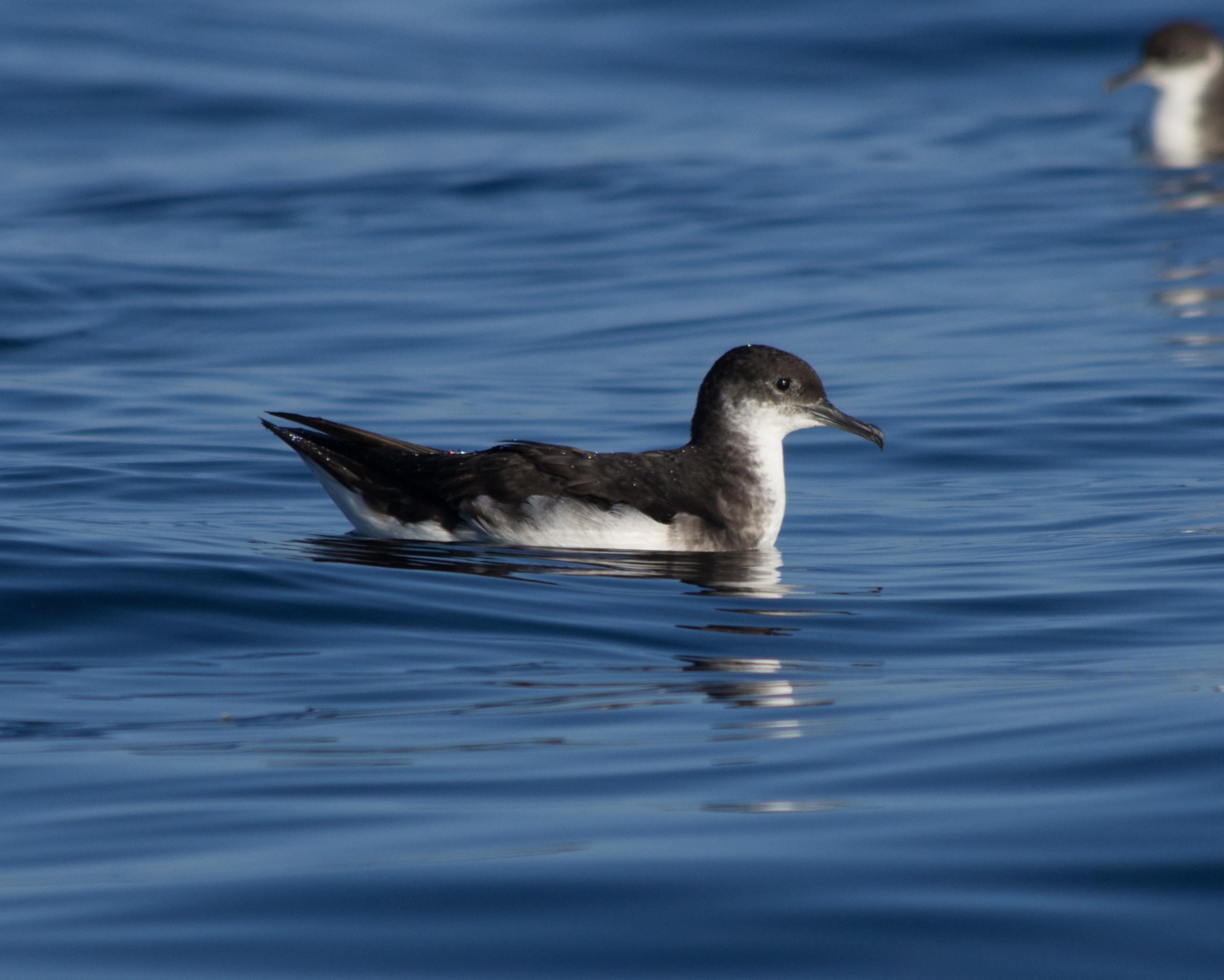 A Manx Shearwater; photograph by Nathan Fletcher
A Manx Shearwater; photograph by Nathan Fletcher
Jamie Darby (University College Cork, Cork, Ireland) and colleagues have published open access in The Royal Society’s journal, Proceedings B, on the potential for climate change to negatively impact pelagic seabird populations through difficulty in foraging due to decreased underwater visibility.
The paper’s abstract follows:
“Understanding the sensory ecology of species is vital if we are to predict how they will function in a changing environment. Visual cues are fundamentally important for many predators when detecting and capturing prey. However, many marine areas have become more turbid through processes influenced by climate change, potentially affecting the ability of marine predators to detect prey. We performed the first study that directly relates a pelagic seabird species's foraging behaviour to oceanic turbidity. We collected biologging data from 79 foraging trips and 5472 dives of a visually dependent, pursuit-diving seabird, the Manx shearwater (Puffinus puffinus). Foraging behaviour was modelled against environmental variables affecting underwater visibility, including water turbidity, cloud cover and solar angle. Shearwaters were more likely to initiate area-restricted search and foraging dives in clearer waters. Underwater visibility also strongly predicted dive rate and depth, suggesting that fine-scale prey capture was constrained by the detectability of prey underwater. Our novel use of dynamic descriptors of underwater visibility suggests that visual cues are vital for underwater foraging. Our data indicate that climate change could negatively impact seabird populations by making prey more difficult to detect, compounded by the widely reported effects of reduced prey populations.”
Reference:
Darby, J., Clairbaux, M., Bennison, A., Quinn J.L. & Jessopp, M.J. 2022. Underwater visibility constrains the foraging behaviour of a diving pelagic seabird. Proc. Roy. Soc. B.2892022086220220862. http://doi.org/10.1098/rspb.2022.0862.
Posted 17 August 2022

 English
English  Français
Français  Español
Español